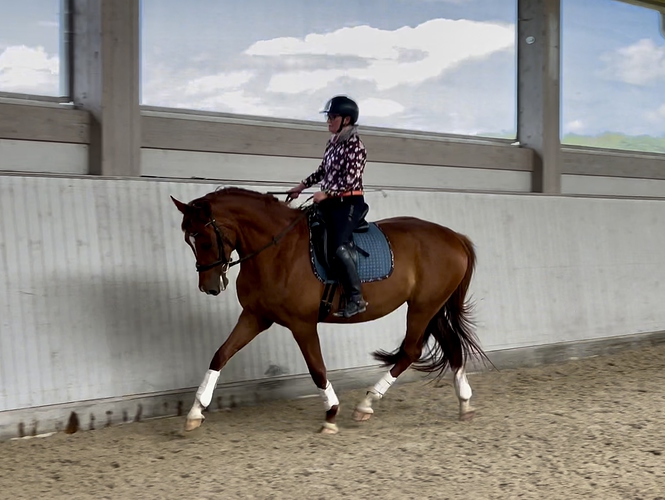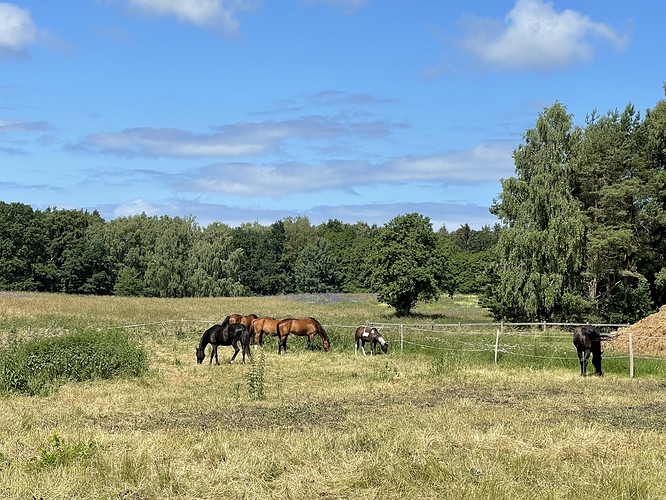Riding young horses takes boldness and confidence. They do silly things. I can’t afford a made horse, so I’ve started my journey with a nice young horse. I did not enjoy the part of the journey where I had to install steering, and I did not enjoy the part of the journey where I had to install forward. I did not enjoy it because I was learning how to install it while teaching him, and that is hard. Now that he’s approaching 7, he’s much more ridable, mainly due to mine and my trainers hard and sweaty work. And he is healthy and completely sound, thankfully.
I don’t really want to repeat this process all over again, so I’m hoping in a few years after we turn him into a nice schoolmaster that I can upgrade and trade him for something fancier with a green change. This AA got her colt-starter merit badge, and I’d like to move on to other things, thank you. If I suddenly had a million dollars, you bet I’d be buying myself a super schoolmaster and handing off the youngster for full training for another year.
The comparison of surgeon types is apt. I work in tech so it’s like being a frontend dev versus a back end dev or a full stack dev. True full stack devs are rare, like a trainer who can bring a horse from halter broke to GP. But there are many good data engineers and front end devs, serverless engineers, etc who are very good at what they do, and that is just fine, like there are trainers who are very good at bringing horses from 3rd level up, polishing finished horses for the show ring, or just starting babies.



 . I could sell my horse every day because everybody is telling me that the mare has the best personality ever and that I was so lucky to pick a foal with a personality like that….
. I could sell my horse every day because everybody is telling me that the mare has the best personality ever and that I was so lucky to pick a foal with a personality like that….